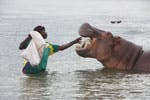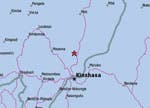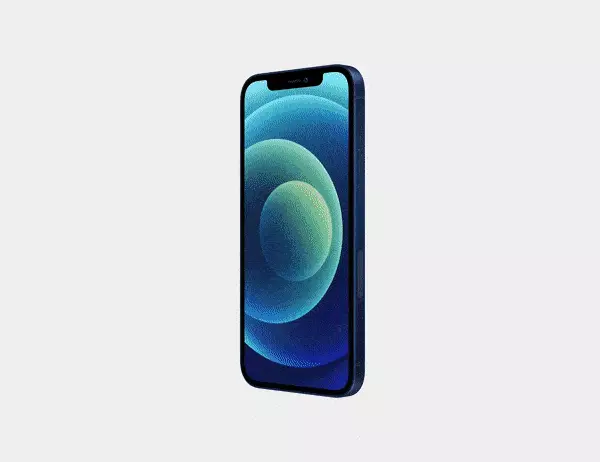My wife, Gwynne, and I, along with our iPhone, have been traveling in Africa for five months. We started in Gibraltar and will end up in Istanbul. This article chronicles our trip to the halfway point in Cape Town, South Africa.
Experienced African travelers immediately show respect to anyone traveling overland in western Africa; traveling there is not for the feint-of-heart. Luckily, I brought along my iPhone. Who would have thought that data, and even 3G coverage, would be so good in a part of Africa renown for the lack of daily essentials such as electricity, sewers, and clean water?
The first article of this series (iphonelife.com/issues/Summer2009/BackpackingAfrica) ended as we left Burkina Fasso. Cell phone coverage and data services were not as prevalent in the parts of Africa we traveled to next:

Togo—no cell phone coverage; none of the listed carriers would connect. Benin—cell phone coverage existed, but there was no data service ■ Nigeria—many carriers were available, two with 3G ■ Cameroon—multiple carriers, one with data service ■ Gabon—two carriers available, but no data service ■ Congo—cell service but data service only in major cities ■ DRC—both cell and data service available; ■ Angola—one carrier available with holes in coverage and no data service ■ Namibia—two carriers available, holes in data service ■ South Africa—multiple carriers available with 3G data service
None of these countries have an AT&T agreement, and data service can cost you upwards of $10.24 per megabyte. (At that rate, downloading a couple of Web pages can cost you $100.) AT&T will notify you via text messaging when this situation occurs. However, having the ability to send and receive e-mail makes this service worth it—just restrict your Web browsing to when you have a free Wi-Fi connection.
Traveling through Africa
A number of interesting and amusing things happened during our travels. Occasionally, I would use the iPhone to take photos of these events.
Bogged down in Cameroon
Our vehicle slipped off the road when were going to the beach town of Kribi in Cameroon. The passengers tried to dig it out for a couple hours without success. In desperation, I offered 2,000 CFA (about $40) to a young local man to get a truck to pull us out. I thought he understood me, but instead he brought his whole village back to pull us out. Over the course of three hours, at least a hundred people stopped to help, watch, give advice, and engage in drunken brawls. Finally, a big truck came by, and after negotiating a price, pulled us out. Unfortunately, it was too late to travel. Fortunately, a local minister allowed us to set up our tents in front of his bamboo-walled, tin-roofed church.
Hungry, hungry hippos
 Apparently, somebody forgot to tell the people living along the Congo River in Cameroon that wild hippos are extremely dangerous. What we experienced there was astounding!
Apparently, somebody forgot to tell the people living along the Congo River in Cameroon that wild hippos are extremely dangerous. What we experienced there was astounding!
On nothing more than a rumor, we made arrangements to meet some locals on the riverbank. When we got there, a man stripped down and swam into the river towards a group of wild hippos. Hippos account for most of the deaths caused by animals in Africa, and it seemed that this man was foolishly risking his life. He stood in the shallow middle of the river and began calling out… and the hippos came to him! Then, his friends hustled us into small, hand-hewn canoes, and took us to where the man was standing. We watched as he talked to the hippos. He stretched his arm out until the hippos opened their mouths, and then he threw cornmeal into their gapping maws. He called us over one-at-a-time to pat the hippos on the snout when they closed their mouths to swallow. We were actually touching wild hippos on the head!
The lost gorilla reserve
 Congo is the mythical birthplace of Tarzan, so it seemed somewhat apropos when we passed a small unobtrusive sign that said “gorillas” on a lightly traveled, unpaved back road. Gorillas are big tourist draws, and most of the reserves are well publicized, but no travel book or Internet site mentioned of this one.
Congo is the mythical birthplace of Tarzan, so it seemed somewhat apropos when we passed a small unobtrusive sign that said “gorillas” on a lightly traveled, unpaved back road. Gorillas are big tourist draws, and most of the reserves are well publicized, but no travel book or Internet site mentioned of this one.
We drove along a narrow, windy, overgrown path, passing mud-brick huts with people sitting under the shade of creaky bamboo canopies. We then saw the park entrance sign. The park “ranger station” was a couple bamboo huts, and the ranger was a pleasant young man wearing a t-shirt. He walked us through the bush to a fabulous promontory overlooking a valley, perhaps 2,000 feet below. It was a beautiful, lush valley surrounded by rock cliffs and protected from the outside world by its remote and secretive nature. It was right out of Edgar Rice Boroughs—Tarzan would have been ecstatic. (In fact, I gave Tarzan #13 to the ranger as a parting gift.)
We didn’t see any gorillas, but the valley itself was more than worth the effort. It’s a true treasure and, I think, quite rare. The GPS Log app shows the general location of the reserve; its latitude and longitude are as follows: -3.974562, 15.325717. If you go to Congo, make sure you check it out!
Playing “chicken” African style
Most roads in Africa are very narrow, and there no passing lanes or turnouts. African drivers will pass you when and where the mood strikes them, at very high speeds and with no regard for anyone’s safety. Consequently, the rusty remains of wrecked cars and trucks are everywhere. Tree branches spread across the roadway are the equivalent of flares signaling a wreck ahead. And there are no policemen or tow trucks to help you. If you’re in a bad crash, you die alone. Crowds quickly gather around recent wrecks, scavenging the cargo and stealing any remaining fuel.
Black plastic sacks
There is one ubiquitous presence in Africa, so universal that it deserves its own acronym: BPS (black plastic sacks). Everything you buy is ensconced in a BPS before being handed over to you. Unfortunately, there now seems to be billions of BPS plying the wind in Africa. They crash in on waves at the beaches and line the hallways in government buildings. They clog every low-lying area and every niche and crevice of the landscape. They do serve admirably as a makeshift commode that can be closed after use and conveniently dumped along the side of the road.
Personable seals
The Walvis Bay of Namibia (Lat: -22.883632, Long: 14.446787) hosts an amazing array of wildlife, the most remarkable of which are the seals. The seals have no natural predators and to them a kayak is just a big interesting creature. Large groups of the young seals gamboled around our craft in enthusiastic abandon. They were even confident enough to grab our paddles in their mouths and let us touch their bellies. I certainly used my GPS Log app to document this terrific experience.
Africa in a nutshell
In closing, I thought I’d share a few other conclusions I’ve come to, based on our travels in Africa:
- If motorcycle manufacturers want to limit the number of passengers to 4, they shouldn’t make room for 5 people on one of their vehicles.
- Radios in African taxis don’t need to work because the taxi drivers get all the entertainment they need by honking their horns.
- In addition to the BPS mentioned above, there is only one other universal product in all of Africa—Coca Cola.
Gwynne and I still have half of Africa to go, and I have other apps I want to try with my iPhone. I’ll report on them in another issue of iPhone Life.
Apps that helped us in our travels
This article looks at the travel apps we used on our trip. Luckily, the travel apps I tested did not use much bandwidth. Battery life is paramount in the bush, and the iPhone’s is reasonably good, even when you’re using 50 to 100 apps daily. I only had to recharge once or twice a week.
Maps showed us where we were, but little else
We traveled far into the bush on rutted dirt roads, passing mud-brick villages. Maps did do a good job of finding where we were and showing a few local roads, but it was unable to plot a route from our current location to the desired destination. It could display satellite images of the territory, but those were little more than curiosities.

